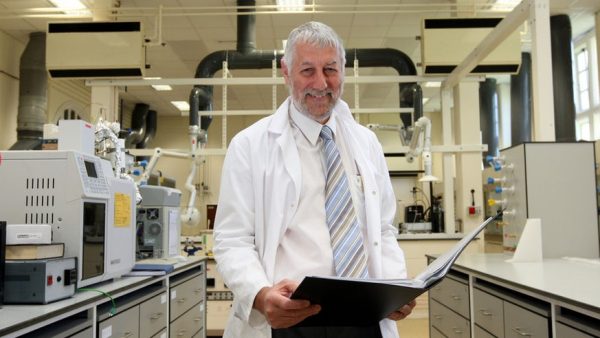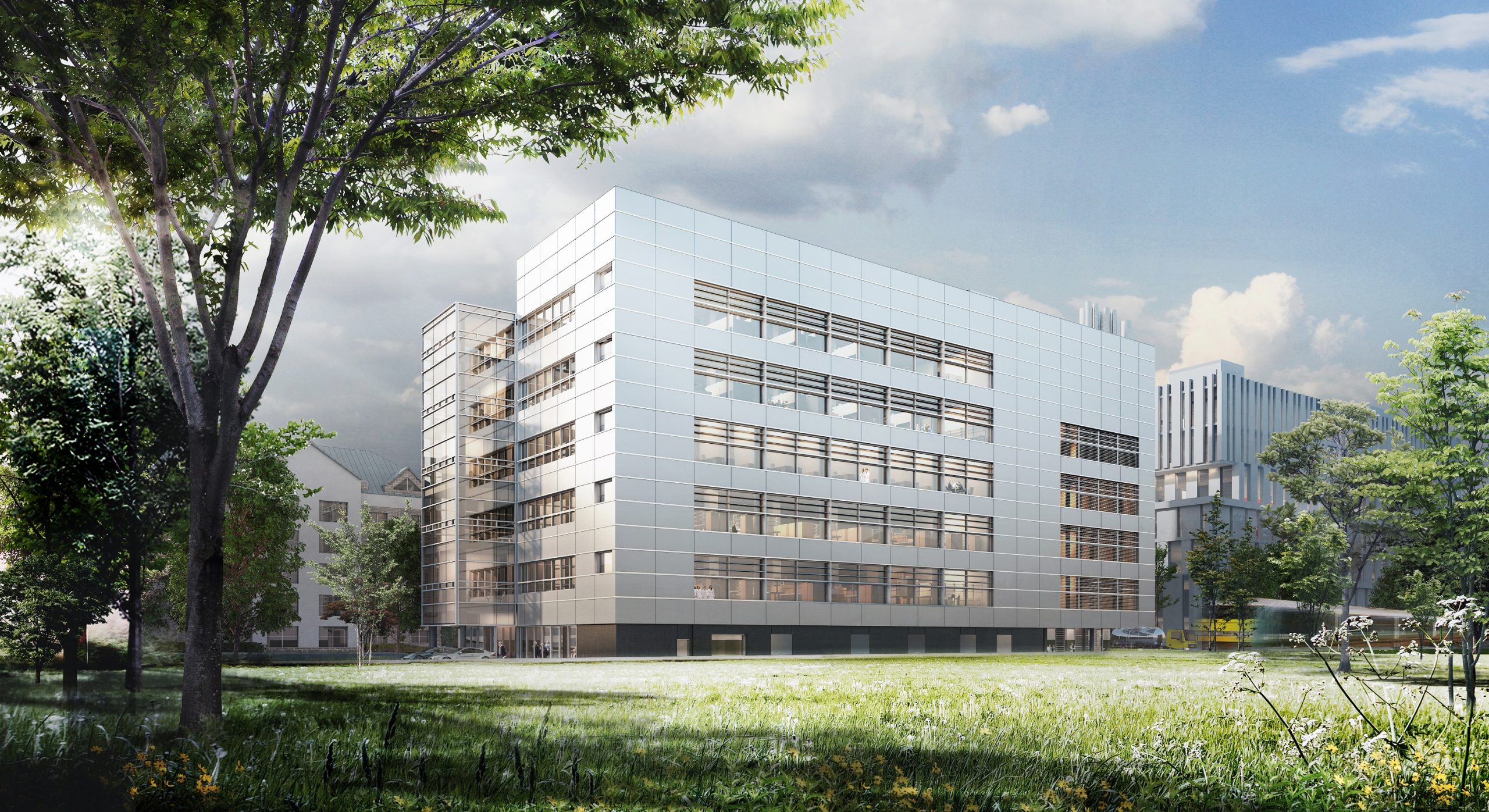Maximising Excellence in Catalysis
24 January 2022
The science of catalysis underpins almost everything we do, from fertilising crops to washing our dishes. Researchers at Cardiff Catalysis Institute (CCI) excel in discovering and developing new catalysts – materials that speed up a chemical reaction. A partnership with the Max Planck Society is spearheading the quest for clean water, safer industrial processes and Net Zero carbon. Professor Graham Hutchings, from CCI, explains how the collaboration contributes to solving society’s pressing problems.
“Catalysts underpin our everyday lives. They’re used to produce almost all manufactured materials. They underpin over a third of global GDP. It is estimated that without one single catalytic method – the Haber Bosch Process that fixes nitrogen with hydrogen to produce ammonia – we would only sustain 60% of the world’s current population.

Thanks to our long-running partnership with the Max Planck Society, Cardiff is home to a Max Planck Centre – one of only three in the UK, and nine in Europe. Our collaboration with Germany’s most successful research organisation allows us to continuously develop heterogeneous catalysis, where the catalyst and the reactant/products are in different phases, e.g. a solid catalyst and liquid reactants.
Historically, catalytic converters in cars are one of the first things people often mention when considering ‘catalysis.’ The exhaust emission control devices convert toxic gases into less harmful emissions. Most news stories these days centre on the theft of converters, which contain valuable precious metals.
Indeed, precious metals – particularly gold nanoparticles – play a major role in our research as the Max Planck Centre on the Fundamentals of Heterogeneous Catalysis (FUNCAT). The Centre specialises in three key themes: catalyst design, acetylene reactions and machine learning.
In our Max Planck Centre laboratories, we demonstrate and develop hugely successful processes adopted worldwide. Cardiff Catalysis Institute teamed with global science and chemicals company Johnson Matthey to develop an environmentally friendly catalyst for the manufacture of vinyl chloride monomer (VCM), which is used to make poly vinyl chloride (PVC).
The catalyst, which replaced products containing toxic mercury compounds, won Innovative Product of the Year at the Institution of Chemical Engineers Global Awards 2015, and is now embedded in PVC industrial processes. The discovery not only led to a new commercial catalyst but also changed international law.
 When the Max Planck Centre moves to Cardiff University’s state-of-the-art Translational Research Hub later this year, we will be equipped with the laboratory spaces to further develop safe, sustainable, commercial catalysts with new applications – for instance, making methanol from waste glycerol to produce cleaner biodiesel, or producing greener solutions for laundry, dishwashing and water disinfection.
When the Max Planck Centre moves to Cardiff University’s state-of-the-art Translational Research Hub later this year, we will be equipped with the laboratory spaces to further develop safe, sustainable, commercial catalysts with new applications – for instance, making methanol from waste glycerol to produce cleaner biodiesel, or producing greener solutions for laundry, dishwashing and water disinfection.
We work with internationally leading and recognised partners like Johnson Matthey across fields such as fuel and chemical manufacturing industries and help to develop and refine processes through combinations of conventional and innovative methods.
And our work will make a valuable contribution to new Net Zero. Our High Throughput Reactor laboratory provides us with high pressure reaction facilities for testing new catalysts, including bunker laboratories and computer-controlled gas delivery infrastructure, allowing us to test automotive catalysts and help industry create new products and processes.
Collaborating with Max Planck through FUNCAT is crucially important for CCI: it allows us to build lasting partnerships and opens up new areas for collaboration. Since its establishment in 1948, no fewer than 22 Nobel laureates have emerged from the ranks of Max Planck scientists, putting it on a par with the best and most prestigious research institutions worldwide.
Our collaboration is leading to higher impact research papers in prestigious publications like Nature and Science, demonstrating our leadership in the field, and helping to produce a higher level of postgraduate training.

Max Planck Centres (MPC) are a central element of the Max Planck Society’s internationalisation strategy. We work with two institutes that have real strength in heterogeneous catalysis: Max-Planck-Institut für Kohlenforschung (Mulheim) and the Fritz Haber Institute (Berlin): FUNCAT brings shared excellence together.
Through continued cooperation, we continue to lead. Only this month, we proposed a simple, low-cost method of directly converting natural gas into useful chemicals and fuels, using gold as a key ingredient.
CCI researchers, in collaboration with scientists at Lehigh University, USA and the National Centre for Magnetic Resonance in Wuhan, China, have devised novel ways of converting methane, which accounts for 70-90% of natural gas, into more useful products, such as a fuels and chemicals, in a simple, cost-effective and low-carbon manner.
The study, published in Nature Catalysis, demonstrated, for the first time, the direct conversion of methane into methanol and acetic acid using a gold catalyst.
In the years ahead, and with new facilities on the horizon, we hope our continued partnership with Max Planck will further our goal of joint excellence, and contribute to creating a cleaner, greener planet by improving the understanding of catalysis, developing new catalytic processes with industry, and promoting the use of catalysis as a sustainable 21st century technology.”
Graham Hutchings, Regius Professor of Chemistry, School of Chemistry.